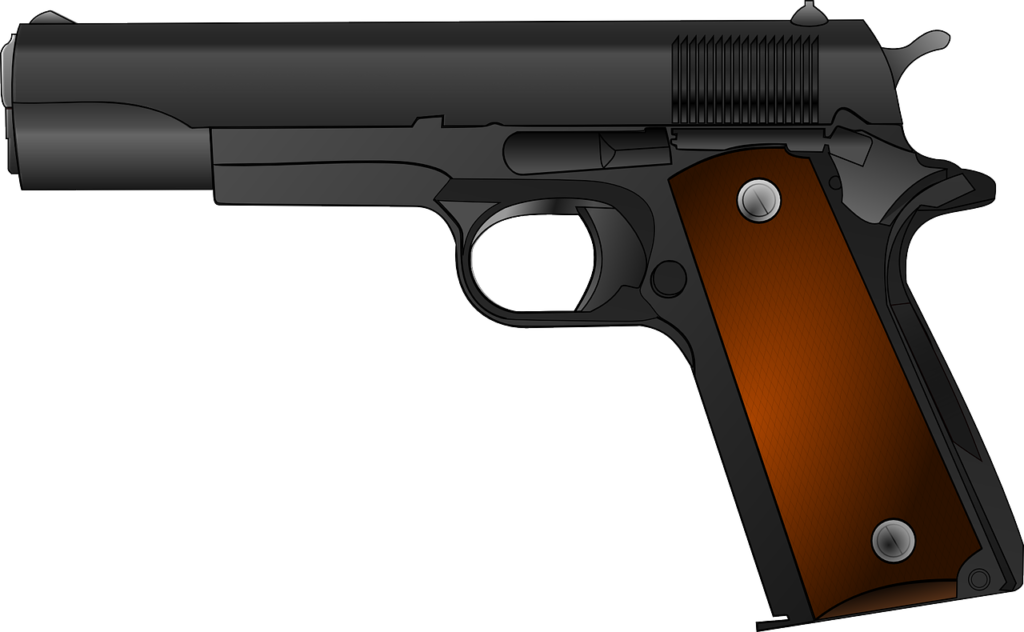
Matt Vasilogambros
Staff Writer, Stateline
After a shooter killed three elementary school children and three faculty members in Nashville last month, hundreds of student activists flooded the Tennessee state Capitol to demand new gun restrictions. On the state House floor, three Democratic members disrupted proceedings by shouting through bullhorns, calling for a debate on firearm access.
But those calls went unheeded.
The Republican-led legislature voted last week to expel two of those three members for their “disorderly behavior,” while the state Senate Judiciary Committee announced it would not take up any gun-related legislation this session. Gov. Bill Lee joined fellow Republicans in saying that now is not the time for debate.
While lawmakers in Tennessee are not going to pass any gun restrictions this year, lawmakers in Democratic states are citing the Nashville school shooting to further their bills. But as mass shootings continue to occur regularly throughout the United States — including one that killed four people in a Louisville, Kentucky, bank Monday — there is a wide valley between the legislative reactions of states led by Republicans and those led by Democrats.
Lawmakers in GOP-led states, including Florida, Iowa, Mississippi, Missouri, Oklahoma, South Carolina and West Virginia, have passed or are close to passing measures that will expand firearm access, including allowing people to carry guns without a permit and expanding gun access in schools and on college campuses.
At the same time, lawmakers in Democratic-led states are steadily enacting new restrictions aimed at preventing further mass shootings, such as increasing the legal age to buy guns, and expanding background checks and “red flag” laws that allow courts to seize guns from people who may be a harm to themselves or others.
Democratic lawmakers are passing “reasonable” laws to prevent tragedies, said Allison Anderman, senior counsel and director of local policy at the Giffords Law Center, which tracksand advocates for gun safety legislation.
“People are genuinely afraid that they themselves or their loved ones will be the victims of a predictable mass shooting,” she said, “and they’re unwilling to look the other way anymore.”
Related Stateline Story
New Gun Restrictions Are Coming in States Where Democrats Reign
Some of the measures other states are considering, such as red flag laws or bans on semi-automatic rifles, could have prevented the mass shooting in Nashville, Anderman argued, since the shooter is reported to have been treated for an emotional disorder and to have purchased several firearms legally.
“Whether they choose to use this moment to advance real change or continue the status quo and do nothing remains to be seen,” she said of Tennessee legislators.
Instead of taking up new gun measures, state Senate Judiciary Chair Todd Gardenhire said the committee will instead focus on the “healing process.”
“This committee is not gonna be turned into a circus by people with other agendas,” he told the Tennessee Lookout.
The impact of the mass shooting in Nashville is being felt across the country, influencing new legislation.
In Washington state, Democrats are expecting to enact legislation that would ban semi-automatic rifles, add a 10-day waiting period for gun purchases and allow gun manufacturers and sellers to be liable for negligent sales.
Before advancing the legislation in a committee hearing last month, Democratic state Sen. Yasmin Trudeau read aloud the names of the six victims in Nashville. The shooting, which happened the previous day, weighed heavily in her mind, she noted, because she has 8-month-old and 4-year-old children and a 15-year-old brother.
“How am I supposed to put them in school?” she said. “I’m terrified. We have to name the victims. I felt compelled to remind people why we’re doing this.”
Massacres Inspire New Laws
Mass shootings in other Democratic-controlled states are also motivating lawmakers to pass more gun safety legislation.
In Michigan, newly elected Democratic state Rep. Sharon MacDonell in February met with a group of students from Oxford High School outside Detroit, the site of a 2021 school shooting where a student killed four of his classmates.
Those students and other activists had spent two years urging the state legislature to act, but met resistance from Republican leaders, who until January held the majorities in the state legislature and wanted to protect firearm ownership rights. MacDonell said she felt “literal shame” that she and her colleagues had not yet passed the “bare minimum to save children’s lives,” like background checks.
“How pointless is that?” she asked Stateline in an interview. “How weak is that? To me, children are more important than guns.”
Ten days after the constituent meeting, a gunman killed three students at Michigan State University.
One of the victims was from MacDonell’s district. After attending the funeral visitation and meeting the victim’s father, she resolved to push gun safety bills.
“We don’t have to pretend there’s nothing we can do to stop children being murdered,” MacDonell added. “We need to demand change.”
The Democratic-led Michigan legislature is now on the verge of sending a raft of gun safety measures to Democratic Gov. Gretchen Whitmer’s desk. They would mandate universal background checks for gun purchases, establish a red flag law to get guns out of the hands of those who might harm themselves or others and require the safe storage of firearms in homes.
A red flag law, which allows family members or medical professionals to file extreme risk protection orders with a court, is a valuable tool that may not prevent all gun violence, but will make it less likely, said Democratic state Sen. Stephanie Chang, who sponsored the measures. “We know these are common sense policies,” she said. “They’re going to save lives.”
Related Stateline story:
Supreme Court’s Gun Rights Decision Upends State Restrictions
Republicans opposed the measures along party lines, arguing the bills would hurt law-abiding gun owners’ ability to protect themselves.
“They will give people a sense of false security, all while infringing on everyone’s right to own a firearm, to hunt or even defend themselves and their family,” Republican state Sen. Joe Bellino said last month, according to The Detroit News.
This is “the floor, not the ceiling” of gun safety legislation that lawmakers will push through in Michigan over the coming years, Chang said. She and her colleagues are eyeing measures that would invest in community violence prevention programs and would strip gun manufacturers of immunity from lawsuits.
Expanding Gun Restrictions
Lawmakers in other Democratic-controlled states are expanding existing gun laws.
In Colorado, the legislature passed two new gun safety measures, including one that would raise the age limit for purchasing firearms from 18 to 21. The other would expand the state’s red flag law, soon allowing district attorneys, teachers, behavioral health professionals and medical personnel to file extreme risk protection orders so courts can seize firearms from those who may be a harm to themselves or others. Both await Democratic Gov. Jared Polis’ signature.
Previously, only sheriffs and family members could petition the court, but several conservative county sheriffs throughout the state said they refused to do so because of due process concerns for gun owners.
Extreme risk protection orders save lives but could save more, said Democratic state Senate President Steve Fenberg, who sponsored the measures and was inspired in part to improve on the state’s gun laws after the November mass shooting at an LGBTQ nightclub in Colorado Springs, which left five dead.
Mass shootings are causing “societal trauma” that lawmakers need to address with urgency, he said.
“It can’t be one legislative session, one bill, one horrible event. It has to be an ongoing approach and builds on each other,” he said. “I know these laws save lives, but I know they can be improved. We can’t be afraid to say that and improve it.”
Every Republican in the legislature voted against the measures. Senate Minority Leader Paul Lundeen said in a statement last month that the bills “will only create hurdles for Coloradans to exercise their legal rights to self-protection.” Several Democrats also opposed raising the buying age of firearms.
Democratic lawmakers in states including Connecticut, Illinois and Minnesota are seeking to invest more in community violence prevention programs, according to the Giffords Law Center. In Illinois and Hawaii, legislators also want to expand background checks, while California Democrats are seeking a ban on untraceable “ghost guns.”
But as the mass shooting in Nashville dominated headlines, Florida Republican Gov. Ron DeSantis signed into law a measure that added his state to the list of 25 that allow people to carry firearms without a permit. This new law comes as a stark change five years after a bipartisan group of Florida lawmakers enacted several gun restrictions in the aftermath of the 2018 shooting at Marjory Stoneman Douglas High School in Parkland that killed 17 people.
“Constitutional carry is in the books,” DeSantis said last week after signing the bill, referring to the term gun rights advocates use to describe laws that don’t require permits to carry concealed firearms.
South Carolina lawmakers also are expecting to enact a measure this year that would allow for the permitless carry of firearms.
Stateline, an initiative of The Pew Charitable Trusts.


